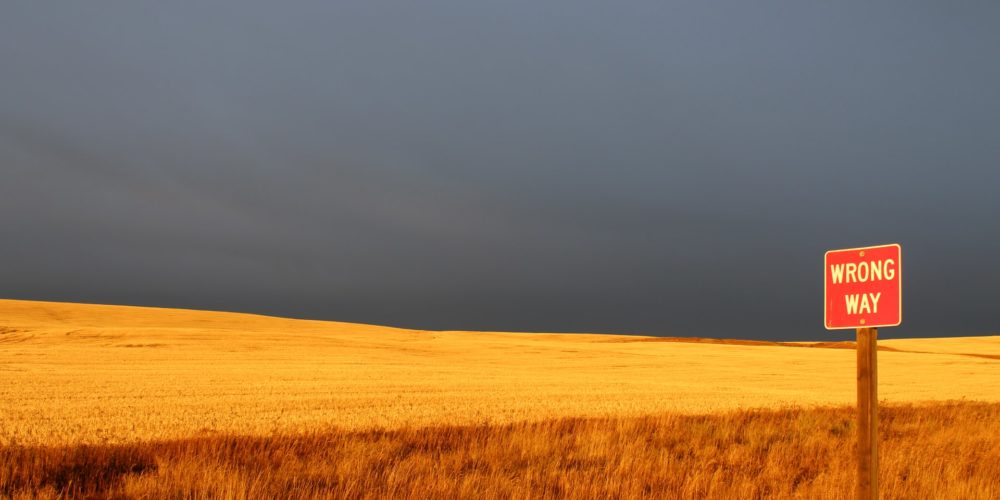Look for this one trait in your smartest employees

Jeff Bezos is the visionary founder of Amazon, the company that has revolutionised how people buy stuff. We are all e-commerce customers now, because of the trails blazed by Amazon more than two decades ago.
Inc. magazine recently reminded us that Mr Bezos was once asked this question: what’s the most important quality you look for when hiring your best people—the smartest ones, the ones who will form your core team, who will drive the business forward? What do you think his answer was? What would yours be?
Did he identity stellar credentials from the best schools and universities? No. Did he say relevant and diverse experience is the most important thing? Negative. Does he look for personalities that demonstrate leadership ability? Nope.
Here’s the one quality the Amazon founder looks for in his top hires: the tendency to be wrong—a lot! He wants people who make plenty of mistakes, but who are humble enough to accept and embrace those mistakes, rather than hide or deny them. Intellectual humility, in other words.
Basecamp’s cofounder Jason Fried was in the room, and reported that Bezos “observed that the smartest people are constantly revising their understanding, reconsidering a problem they thought they’d already solved. They’re open to new points of view, new information, new ideas, contradictions, and challenges to their own way of thinking.”
Those who have read this column for a long time will know that this is a clarion call that often blows out from this page. The smartest folks are not the ones who are most confident in their smartness; it is the ones who are relearning that we should pay most attention to. This goes against the grain of what many regard as leadership. We seem to feel we must be in the hands of the most confident, the most charismatic, the most assertive.
If one of the most accomplished business innovators in history tells you something quite different, perhaps we should pay a lot of attention.
This is not just an opinion, however. Research backs it up. Those who don’t think they know it all learn faster than others; they are more likely to make good decisions; and they will be better placed to embrace diversity. As Inc. put it: being open to being wrong, ironically, makes you right a whole lot more often.
This is why those who attend my own leadership development programmes are required, at the point of entry, to acknowledge their own foolishness. This is not done to mock them or bring them down to earth; rather, it is a way to help them learn better. Those who arrive with the delusion that their glass of wisdom is already full will not imbibe anything new, after all. As Woody Allen pointed out: “Confidence is what you have before you understand the problem.”
The biggest challenges, the toughest conundrums—these things do not lend themselves to easy solutions. Complexity in the problem demands open-mindedness and creativity in the solution. Such problems cannot be solved at the first time of trying. That is exactly why many of us seek out people with the humility to be wrong. Understanding what you are doing wrong is the first step towards being right—eventually.
What do those with intellectual arrogance do? They respond quickly and confidently. Here is the answer, they say—and it is certain to be the right one. Then, when things don’t seem to be working, they dig in their heels and double down. They remind you of their credentials. They exude conviction, and browbeat everyone into believing them. Sometimes, this works. Most of the time, it just doesn’t.
The truly wise know how little they know. They are open to doubt. They ask themselves questions like: were my assumptions wrong? Have I failed to see the crux of this matter? Was I blinded by prior experience that doesn’t apply in this situation? Was I being an intolerant jerk to the others in the room?
These are scary questions for those who have been brought up to exude confidence. They are essential reflections for those who are going to genuinely advance human knowledge and achievement.
I am not asking anyone to be weak and indecisive, do note. The smartest people do not sit on their hands worrying. They spend enough time thinking and pondering, and then move on to action. The difference is this: they study the results of their actions with keen interest and open minds. The real learning happens by trying things out—and preparing for surprises. An unexpected consequence is not hidden or denied—it is examined with a sense of wonder.
“Aha—that’s why I was wrong.” Now that’s a sentence worth making part of our lives.
(Sunday Nation, 28 August 2022)

Buy Sunny Bindra's new book
The X in CX
here »
Popular Posts
- NY’s wake-up call to the old guardNovember 9, 2025
- Save your strength for repairsNovember 2, 2025
- How to listen, really listenNovember 16, 2025
- Empathy is the missing code in CXOctober 26, 2025
- Is AI hiring your company into oblivion?November 23, 2025















